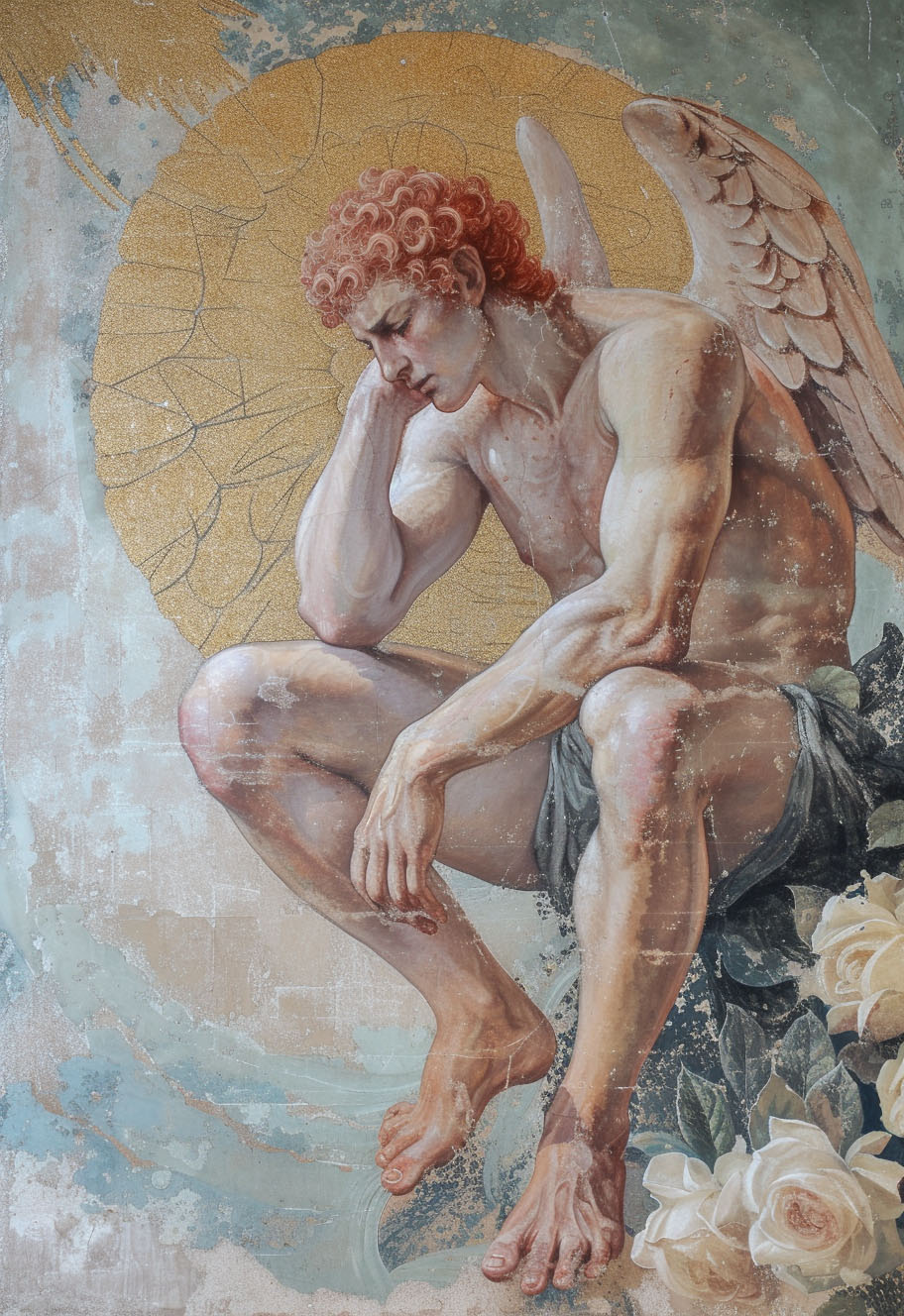Eros
In Greek mythology, Eros is the god of love, desire, and attraction. He is often depicted as a youthful and beautiful winged boy, armed with a bow and arrows, which he uses to shoot at the hearts of both gods and mortals, causing them to fall in love. Here are key aspects of Eros in Greek mythology:
Parents: Aphrodite
Siblings: Harmonia, Phobos, Deimos, Anteros
Consort: Psyche
Children: Hedone

Origins and Genealogy: Eros is sometimes considered one of the primordial deities born from Chaos, alongside Gaia (Earth), Tartarus (the abyss), Erebus (darkness), and Nyx (night). In other traditions, he is the son of Aphrodite, the goddess of love and beauty.
Symbolism and Attributes: Eros is commonly represented as a mischievous and playful winged boy carrying a bow and arrows. His arrows are said to have the power to incite love and desire in those they pierce.
Associations with Cupid: In Roman mythology, Eros is equated with Cupid. Both deities share similar attributes and roles, being responsible for inspiring love and desire.
Role in Creation: In some cosmogonic myths, Eros is portrayed as a force that played a role in the creation of the world, instigating the desire that brought about the union of primordial elements.
Parentage and Relationships: Depending on the tradition, Eros is either the son of Aphrodite alone or of Aphrodite and Ares (the god of war). In some versions, Eros is portrayed as a companion to Aphrodite, and in others, he acts independently.
Myth of Eros and Psyche: One of the most well-known stories involving Eros is the myth of Eros and Psyche. Psyche, a mortal woman, is initially forbidden to look upon Eros, her unseen husband. When she disobeys this command, Eros abandons her, but their love eventually triumphs after numerous trials.
Representation of Love: Eros is not only associated with romantic or sexual love but also with a broader concept of desire and attraction. His influence extends to various aspects of human relationships.
Worship and Cults: Eros was occasionally worshipped in ancient Greece, and he had a presence in some religious practices and cults. However, his worship was not as prominent as that of other major deities.
Eros in Art and Literature: Eros has been a popular subject in ancient Greek art, literature, and later cultural expressions. His image is often depicted in various forms, representing the different aspects of love.
Cultural Impact: The concept of Eros as the god of love has left a lasting legacy and has been influential in Western literature, philosophy, and art. The word "erotic" is derived from Eros, underscoring its association with desire and passion.
In summary, Eros is a significant figure, embodying the force of love and desire. Whether as a primordial deity or the son of Aphrodite, Eros' influence transcends romantic love, touching upon the broader spectrum of human emotions and connections.
Immediate Family
Quick Facts
- Eros is sometimes considered one of the primordial deities born from Chaos.
- He is commonly represented as a mischievous and playful winged boy.
- In Roman mythology, Eros is equated with Cupid.
- Eros played a role in the creation of the world.
- Depending on the tradition, Eros is either the son of Aphrodite alone or of Aphrodite and Ares.
- One of the most well-known stories involving Eros is the myth of Eros and Psyche.
- Eros is associated not only with romantic or sexual love but also with a broader concept of desire and attraction.
- Eros was occasionally worshipped in ancient Greece.
- Eros has been a popular subject in ancient Greek art, literature, and later cultural expressions.
- The concept of Eros as the god of love has left a lasting legacy.
Further Reading
Art &
Architecture
Ancient Greek art and architecture, with its harmonious proportions and timeless elegance, continue to inspire awe and admiration millennia later.
Discover
Greek Mythology & Mythical Characters
Greek mythology, a rich tapestry of gods, heroes, and mythical creatures, captivates the imagination with its tales of love, betrayal, and epic adventures that delve into the depths of the human psyche.
Discover
Ancient Greek History
Ancient Greek history, marked by remarkable achievements in democracy, philosophy, and warfare, shaped the foundation of Western civilization, leaving an indelible legacy of innovation and cultural influence that continues to resonate to this day.
Discover
Ancient Greek Olympics
The ancient Greek Olympics, held in Olympia every four years, celebrated athleticism, unity, and cultural pride, serving as a testament to the enduring spirit of competition and excellence that transcends time and borders.
Discover
Ancient Greek Wars
Ancient Greek wars, such as the Persian Wars and the Peloponnesian War, were pivotal conflicts that shaped the course of history, highlighting the struggle for power, independence, and the clash of civilizations in the ancient Mediterranean world.
Discover
Ancient Greek Culture and Society
Ancient Greek culture and society, characterized by its emphasis on art, philosophy, and civic engagement, fostered a vibrant intellectual and social landscape where innovation flourished, democracy thrived, and the pursuit of knowledge and excellence was celebrated as fundamental values of civilized life.
Discover
